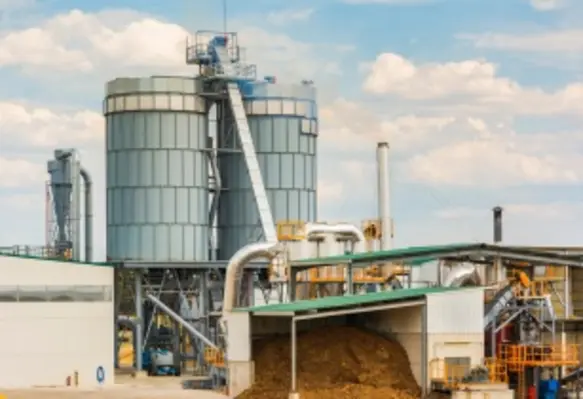Olaf Naehrig, Senior Area Manager at Amandus Kahl, speaks with Far Eastern Agriculture on what makes their pellet mills unique with their Expander technology
Can you give us an overview about your company?
Olaf: We are Amandus Kahl, a German equipment manufacturing company comprising of more than 900 employees, having branches and offices in various countries, to support the local markets. Our main business is animal feed, but we are also part of the biomass, pelleting, recycling, chemical, and food industries.
How do you think COVID-19 has affected your business?
Olaf: COVID-19 has had an impact, of course, in the way we can work in Germany. We have to comply with the rules, and that is the first big impact. Secondly, we do international business and COVID-19 has reduced international travel activities a lot. However, investment has continued over time, sometimes being slower, and sometimes faster. Since people in the feed industry need to eat, we have to do something that continues to work. The third impact is from the labour end, since COVID-19 forced workers to move back to their homeland. Apart from COVID-19 however, a number of other factors such as the energy crisis, commodity crisis and supply chain problems have created momentum for people to do something different. Hence, interesting projects are now under threat for us.
Can you tell us about your latest products and what makes them unique?
Olaf: We build complete feed mills and supply a lot of them to the Middle East. In other markets, we supply lines and single equipment depending on the region. We are a very successful technology provider, focusing not only on machines and machine parts, but also on the nutritional aspects. Hence, using an expander from Kahl can help improve digestibility and reduce recipe costs. This is what makes our products different from other makers.
Also, while improving the performance of a pellet mill, makers usually focus on minute features. However, the question is whether this will actually have a real impact on the pellet quality and energy. I think it is marginal because you cannot overcome the intrinsic issues of a pelleting process. Moreover, at a certain point in time, we cannot increase the moisture too much since this will reduce starch gelatinisation.
That is why we introduced the Expander almost 40 years ago to the market. This gives you a lot of new options and features to treat the feed differently, just by letting the pellet mill shape the pellet. Now, it is not a starch gelatinising machine, or a machine to help you reduce anti-neutral substances. The expander comes with a different approach. You have a dedicated system where you have energy input to do a cooking and you have the starch gelatinisation process to make the fibres more digestible. Hence, shaping the pellets with very low energy inputs on the pellet mill results in higher capacity, higher PDI of the pellets and good nutritional aspects. All these make it a very good combination.
What level of competition are you facing from other markets and industries?
Olaf: We go to markets where our products are required by customers because they see the advantage there, whereas in other markets, we only supply single equipments because the expectations in the market are also different when it comes to the overall investment costs. That is how we evaluate different markets worldwide, and then put our efforts into markets that are worth handling, where we see the potential for our equipment, and also where the customers request us to participate. So, this means that here in Southeast Asia, we mainly focus on single machines such as the expander, the roller mill, and the vacuum quarter. We also have the new vacuum quarter and fishery which currently has a huge demand because of our special technology that is capable of solving customers' problems.
In addition to this, we also have doctors and nutritionists at Kahl. So, when we talk about ruminants for example, we consider long fibre pelleting. This means that if you have a grass or straw fibre, you can see this fibre intact.This requires a different approach from the traditional one and is something that what we can do. While others grind it down to a very small size, prior to the normal process, our plants on the other hand are capable of handling long fibres. People generally appreciate our way of handling because they want to see the long fibre structure in the pellet.
Do you have any plans of expansion?
Olaf: Yes, we are serious business people, growing in levels that we can really handle. We have our ‘Made in Germany’ approach and this is something we will continue. From this point of view, you can see that we will increase our efforts more to provide better service, be more present in the markets, and then utilise the German base to supply our equipment. Hence, it will be more reasonable to grow in the future accordingly, but faster than the market would, of course.




